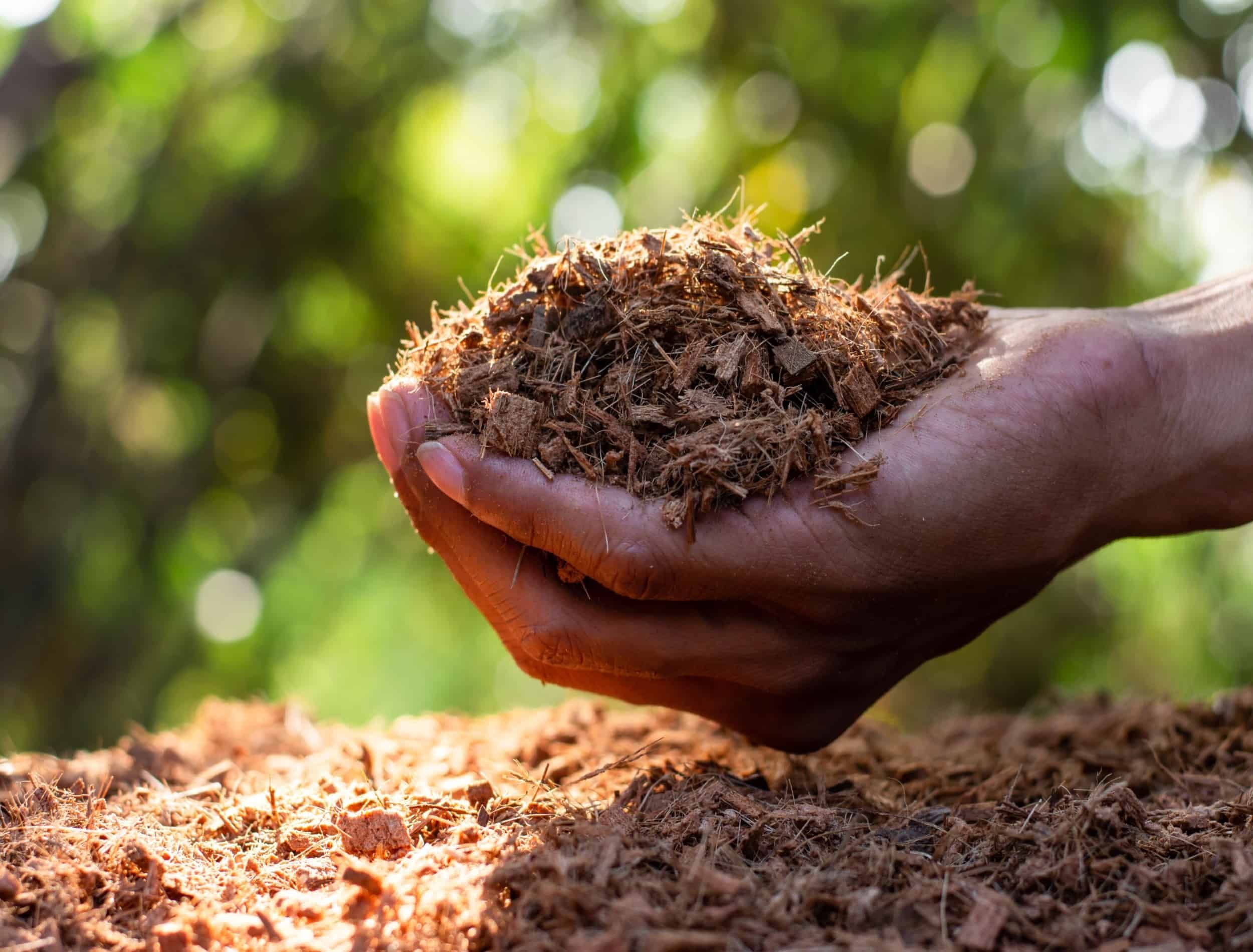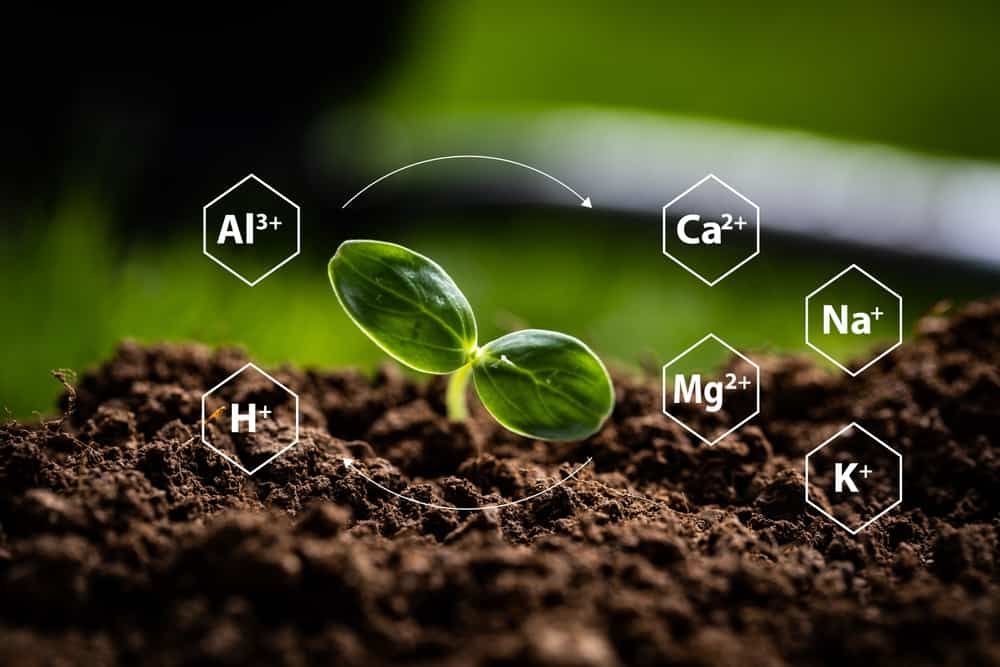Are you constantly looking for new and innovative ways to improve your garden? Do you scour the internet researching new ways to compost or recycle? Well, look no further!
Coconut coir has gained popularity in recent years, and the momentum isn’t slowing down. In fact, recent studies show that the coconut coir market is on track to grow 8.6% by 2027.
Coconut coir is a gardening trend that has been shown to have some major benefits. Here are four reasons why you should try coconut coir in your garden.
First, What Is Coconut Coir?
Image credit: kram-9 via Shutterstock
Coconut coir is a natural fiber derived from coconuts' husks. It is a more eco-friendly alternative to traditional peat moss, and it has a variety of applications, including in gardening and erosion control.
It is composed of hemicellulose, lignin, cellulose, and pectin, which means it has excellent drainage properties and can retain large amounts of water. As a result, coconut coir is often used as a growing medium for plants. It can also be used as mulch or as an ingredient in potting mixes.
Coconut coir is a sustainable product that is renewable and biodegradable. It is also relatively inexpensive, making it a popular choice for gardeners and farmers.
Neutral pH
Image credits: Shawn Hempel via Shutterstock
Coconut coir is an amazing natural product that has a neutral pH. This makes it perfect for use in gardening and hydroponics, as it won't impact the pH of your soil or water.
A neutral pH is better for plants because it results in more efficient nutrient uptake and growth. Soil pH is a measure of the soil's acidity or alkalinity. A soil with a pH of 7 is considered neutral, while soil with a pH below 7 is considered acidic, and soil with a pH above 7 is considered alkaline. The ideal soil pH for most plants is between 6.5 and 7.5.
A neutral pH is better for plants because it results in more efficient nutrient uptake. A soil with a neutral pH allows plants to optimally absorb nutrients from the soil, resulting in healthy growth. When the soil pH is too high or too low, nutrients - such as phosphorous - can become locked in the soil and unavailable to plants, which can lead to nutrient deficiencies and stunted growth.
Environmentally Friendly
Image credits: Yuliia Chyzhevska via Canva
Coconut coir is environmentally friendly because it is made from a renewable resource, it is biodegradable, and it does not strip nutrients from the soil.
As mentioned above, coconut coir comes from the fibrous husks of coconuts, which are a by-product of the coconut industry. Coconut husks are usually discarded after the coconuts are harvested, but they can be used to make coconut coir, creating a sustainable resource.
Coconut coir is also biodegradable and a fantastic alternative to peat moss.
Soil Aeration
Image credits: G_stockervia Shutterstock
There are many reasons why gardeners choose to use coconut coir for soil aeration. Coconut coir is light and airy, yet it retains water well. This makes it an ideal growing medium for plants that require moist soils, such as tropical plants.
One of the main reasons coconut coir is used for soil aeration is because it has a high porosity. This means that there are a lot of tiny spaces between the coconut coir fibers, allowing air and water to move freely through it. Coconut coir is also relatively lightweight, so it won't compact like other soil amendments, such as clay, which can lead to better root growth and improved plant health.
If you are looking for a sustainable, versatile, and easy-to-use growing medium, look no further than coconut coir!
Cation Exchange Capacity In Soil
Image credits: Ivelin Denev via Shutterstock
As a plant parent, you may have heard of cation exchange capacity (CEC) and wondered what it is and why it’s important for your plants.
CEC measures how well soil holds and exchanges cations, which are positively charged ions. Cations are important nutrients that plants need for growth, so having soil with a high CEC means that your plants will be able to access the nutrients they need more easily.
Coconut coir has a higher cation exchange capacity than peat moss, which means it can hold onto more nutrients than other materials better than it's counterpart. This makes it an ideal growing medium for plants because it helps them get the nutrients they need.
If you’re looking for a growing medium that will help your plants get the proper nutrients, coconut coir is a great option.
How To Make Your Own Coconut Coir
Image credits: Seraj Mahmoud via Shutterstock
Now that you know what coconut coir is and why it makes a great growing medium, let's talk about how to make your own coconut coir at home. The process is actually quite simple and only requires a few steps.
To make your own coconut coir, you will need:
- One coconut
- Sharp knife
- Pestle and mortar
- Water
- A large bowl or container
- A colander or strainer
- A clean, dry towel
To begin, carefully remove the hard shell from the coconut using a sharp knife. Then remove the fibers from the shell.
Using a pestle and mortar, crush or grind the fibers until you get the coir, which resembles a powdery residue.
Next, add the coir to a bowl of water. Stir the mixture until it is completely saturated.
After a few minutes, pour the coconut coir and water mixture through a colander or strainer to remove any excess water.
Spread the coconut coir out on a clean, dry towel and allow it to air dry.
Once the coconut coir is completely dry, it is ready to use as a growing medium. Store in a cool, dry place until you are ready to use it.
Crack Open A Coconut!
Have these four reasons convinced you to try coconut coir in your garden? Coconut coir is a great gardening trend because it is sustainable, environmentally friendly, and has some major benefits for your plants. Not only that but using coconut coir is easy and can save you money in the long run.
So, what are you waiting for? Get started with this new gardening trend today! Do you have any tips or tricks to share about using coconut coir in your garden? Drop them in the comments below!





